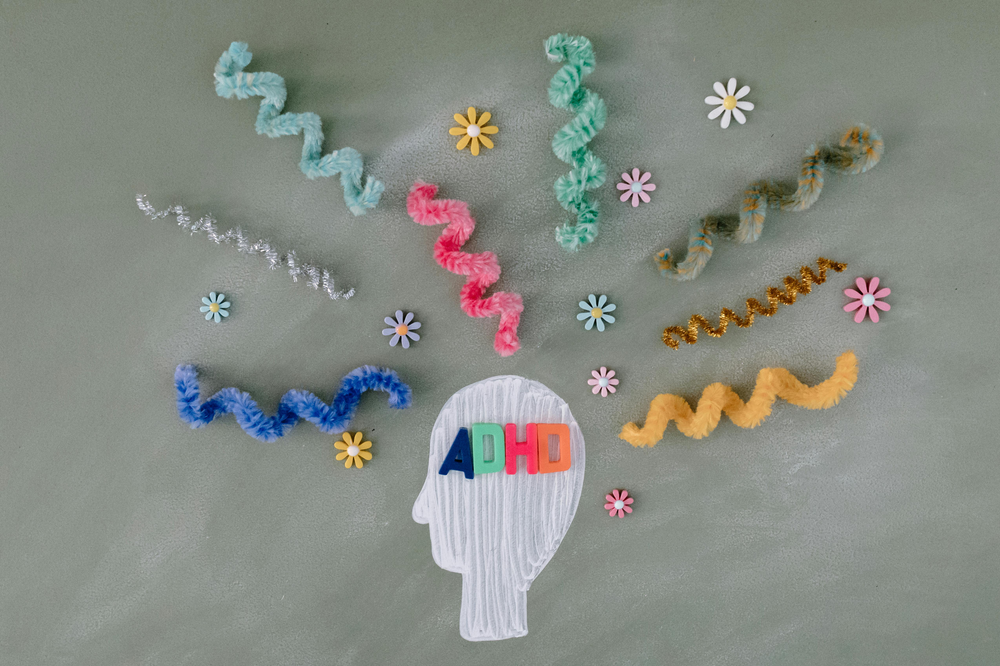Are you an empath or highly sensitive person? Do you find it hard to handle the emotions every day? Wondering how therapists for empaths can help you?
Compassionate therapists can teach you to handle your emotions better. They help you set healthy boundaries too.
At places like Be Your Best Self and Thrive Counseling, empath therapists are ready to help. They create a safe space for you to understand your feelings better. You’ll learn to take care of yourself first.
Key Takeaways About Therapy For Empaths:
-
Highly sensitive people and empaths may experience higher rates of mental health issues like depression and anxiety.
-
Therapists for empaths can help you develop healthy boundaries and manage emotional overload.
-
Compassionate therapists provide a supportive environment for you to explore your feelings and develop greater self-awareness.
-
Online therapy is a popular option for empaths and highly sensitive people, offering flexibility and convenience.
-
Healthy self-care practices, such as rest and positive affirmations, can help empaths manage their emotions and well-being.
-
Working with empath therapists can help you connect deeply with others while maintaining your own emotional well-being.
Understanding the Empath Experience and Sensitivity
Being an empath can be tough. You might feel overwhelmed by emotions. Counseling and wellness resources can help.
Your sensitivity is a double-edged sword. It helps you connect deeply with others. But it also makes you feel others’ overwhelming emotions too much. This can cause mood swings and make relationships hard.
What Defines an Empath?
An empath feels deeply what other people’s emotions are. They are very compassionate and sensitive. But, they often struggle to take care of themselves.
The Science Behind Heightened Sensitivity
Studies say empaths have a special brain part. It helps them connect with others. But, it also makes them feel emotions too strongly. Knowing this can help you manage your feelings better.

Sensory Processing Sensitivity and Its Effects
Sensory processing sensitivity (SPS) is a trait often found in highly sensitive people (HSPs). It refers to the way individuals process and respond to sensory information from their environment. If you have SPS, you might notice that you are more aware of your surroundings and can easily become overwhelmed by certain sights, sounds, or smells.
The effects of SPS can be far-reaching, impacting various aspects of your life. For instance, you might find yourself:
-
More sensitive to light and sound, needing to take steps to minimize exposure to these stimuli.
-
Highly aware of the emotions and energies of those around you, which can make you more susceptible to the moods of others.
-
Prone to feelings of overwhelm and anxiety, especially in highly stimulating or chaotic situations.
-
Experiencing more intense emotional responses to certain situations or stimuli, leading to mood swings or emotional dysregulation.
Despite these challenges, SPS can also be a strength. It allows you to be more attuned to your environment and more empathetic towards others. By understanding and working with your SPS, you can learn to navigate your surroundings in a way that is more comfortable and sustainable for you.
Common Challenges Empaths Face
Empaths often face:
-
Feeling overwhelmed by emotions
-
Receiving feedback about being overly emotional
-
Having trouble setting boundaries
-
Getting pulled into others’ problems
-
Wanting to help too much
Seeking counseling and wellness resources can help. They give you tools to handle your emotions. This way, you can live a happier, more balanced life.
Signs You May Benefit from Working With A Therapist for Empaths
If you’re an empath, you might wonder if therapy is right for you. Our therapists at Be Your Best Self and Thrive Counseling can help. They can spot signs that you might need support.
Feeling too much of others’ emotions is a common sign. Struggling to set boundaries is another. Feeling overwhelmed and stressed often happens too.
Empaths face many challenges. These include anxiety, depression, and feeling burned out. Holistic therapy for empaths offers a safe space to explore these feelings. It helps you understand yourself better.
With empathic counseling, you can learn to handle your emotions. You’ll also learn to set healthy boundaries.
Here are some benefits of empath support services:
-
Learning to recognize and manage your emotions
-
Developing healthy boundaries and self-care practices
-
Improving your relationships and communication skills
-
Enhancing your overall well-being and quality of life
Seeking therapy can be especially beneficial for empaths. It provides a structured way to manage the emotional burden of absorbing others’ feelings and to protect your own mental health. Seeking help from a therapist who gets you is a big step. It’s a chance to heal and grow. Remember, being an empath is a gift. With the right support, you can thrive.
How Therapy Supports Your Empathic Nature
Being an empath can be tough. You might feel overwhelmed by emotions every day. But, with the right help, you can learn to handle it better. Our therapists at Be Your Best Self and Thrive Counseling can teach you how to be strong emotionally.
Starting your mental health journey with therapy can be a transformative step towards better emotional well-being.
They can also help you set boundaries and deal with too much information. This way, you can feel better and connect with others more easily.
Through mindfulness based stress reduction, you can calm your mind and feel less stressed. Cognitive behavioral therapy helps you change bad thoughts into good ones. And dialectical behavior therapy teaches you to handle your feelings and actions better.
These therapies can make you feel more confident and help you get along with others better.
Some benefits of therapy for empaths include:
-
Developing emotional resilience and coping skills
-
Learning to set healthy boundaries and prioritize self-care
-
Managing sensory overload and reducing stress
-
Improving relationships and communication skills
Working with a therapist who gets what empaths need can change your life. You’ll learn to deal with being an empath better. And you’ll live a happier, more balanced life.
Specialized Treatment Approaches for Highly Sensitive People
If you’re a highly sensitive person, you might find special help useful. Our therapists at Be Your Best Self and Thrive Counseling offer online therapy. This lets you get support and learn more about yourself from home.

About 15-20% of people are highly sensitive. This means many could use therapists for empaths and empath support services. Mindfulness can make you feel less emotional by 38%. Therapy can also cut down on sadness by 32%.
Special treatment can help in many ways. For example:
-
Building resilience to get through tough times
-
Learning to talk better to others
-
Distinguishing between your own emotions and those of others
-
Being kinder to yourself and feeling better overall
Our therapists can teach you how to be your best self. With the right help, you can handle being an empath better. You can live a more joyful life.
The Importance of Healthy Boundaries
Healthy boundaries are essential for maintaining emotional well-being, especially for highly sensitive people and empaths. Boundaries are the limits we set for ourselves regarding what we are and are not willing to tolerate in our relationships and interactions with others.
Setting healthy boundaries can help highly sensitive people and empaths to:
-
Protect themselves from emotional overwhelm and burnout.
-
Maintain their sense of identity and autonomy.
-
Develop more fulfilling and sustainable relationships with others.
-
Improve their overall mental health and well-being.
By establishing clear boundaries, you can create a safe space for yourself, allowing you to thrive emotionally and mentally.
Why Setting Healthy Boundaries is Crucial for Empaths
Empaths, in particular, may struggle with setting healthy boundaries due to their natural tendency to absorb and take on the emotions of others. However, setting boundaries is crucial for empaths, as it allows them to:
-
Maintain their own emotional integrity and avoid emotional exhaustion.
-
Develop more authentic and meaningful relationships with others.
-
Improve their ability to empathize with others without becoming overwhelmed.
-
Enhance their overall sense of well-being and life satisfaction.
By learning to set and maintain healthy boundaries, empaths can protect their emotional health and build stronger, more balanced relationships.
How to Set Healthy Boundaries with Friends and Family
Setting healthy boundaries with friends and family can be challenging, particularly for highly sensitive people and empaths. However, there are several strategies that can help:
-
Communicate your needs and boundaries clearly and assertively.
-
Set limits on your time and energy, and prioritize self-care activities.
-
Practice saying “no” without feeling guilty or responsible for others’ emotions.
-
Develop a support network of people who respect and support your boundaries.
-
Prioritize self-reflection and self-care, and take time to recharge and rejuvenate when needed.
By setting healthy boundaries, highly sensitive people and empaths can develop more fulfilling and sustainable relationships, improve their mental health and well-being, and cultivate a greater sense of emotional resilience and well-being.
Finding the Right Empath-Focused Therapist
Looking for a therapist who gets you is key. They should know about empathic counseling and support your feelings. Holistic therapy for empaths looks at your mind, body, and spirit together.
When you look for a therapist, ask them:
-
What experience do you have working with empaths and highly sensitive individuals?
-
What therapeutic techniques do you use, and how can they help me manage my sensitivity?
-
How will we work together to create a safe and supportive environment for my emotional growth?
In your first session, talk about your goals and worries. A good therapist will make a safe space for you. This way, you can grow emotionally, just right for you.
Holistic Healing Strategies for Empaths
As an empath, you might want to feel better and know yourself better. Mindfulness techniques and self-care practices can help. Our therapists at Be Your Best Self and Thrive Counseling can guide you.
Understanding and managing other people’s emotions is crucial for empaths. Studies show that mindfulness techniques like meditation and deep breathing can lower stress and anxiety. Self-care practices like exercise and nature walks can also boost your mood. Adding these to your day can help you manage your feelings better.

Here are more ways to feel better:
-
Setting energetic boundaries at work and home to protect your energy levels
-
Practicing shielding visualization techniques to block negative energy and promote positivity
-
Engaging in activities that bring you joy and help you relax, such as reading or listening to music
By focusing on your emotional well-being and using mindfulness techniques and self-care practices, you can learn more about yourself. This can make your life better overall.
Integrating Professional Support with Daily Life
Living as an empath or highly sensitive person can be tough. It’s key to get help from professionals to feel better and know yourself better. Our therapists at Be Your Best Self and Thrive Counseling offer tips and mindfulness tricks. These help you stay calm and deal with tough times.
Holistic therapy is also great. It looks at your whole self, not just your feelings. A therapist who uses this approach can help you understand yourself more. You might feel stronger, connect better with others, and love yourself more.
Getting help is a journey that takes time. But, if you keep working on it, you’ll get better. With the right help, you can learn to handle your feelings, live now, and feel whole. This way, you can live a happier, more balanced life.
Conclusion: Embracing Your Sensitivity Through Therapeutic Growth
If you’re an empath or highly sensitive person, you’re on a special journey. Experienced empath therapists can help you grow. At Be Your Best Self and Thrive Counseling, we care about your growth.
With empathic counseling, you’ll get to know yourself better. You’ll learn to handle too much information and set boundaries. This way, you’ll use your sensitivity to make your life and relationships better.
Your sensitivity is a special gift. With the right help, you can be your best self. Let our therapists at Be Your Best Self and Thrive Counseling guide you. They’ll help you live a more fulfilling life.
Frequently Asked Questions About Therapy for An Empath
What defines an empath?
If you feel things deeply, you might be an empath. Our therapists can explain why you feel so much. They help you deal with too much emotion and setting boundaries.
How do I know if I could benefit from therapy for empaths?
If you feel others’ emotions too much, you might need help. Our therapists offer a safe space to talk about your feelings. They help you understand yourself better.
How can therapy support my empathic nature?
Our therapists teach you to handle your sensitivity better. They show you how to build strong boundaries and manage stress. You’ll learn to be more resilient.
What specialized treatment approaches are available for highly sensitive people?
We offer online therapy for empaths. It’s flexible and convenient. Our therapists tailor it to fit your needs.
How do I find the right empath-focused therapist?
Our therapists guide you to find the right therapist. They help you understand yourself better. You’ll learn to manage your emotions.
What holistic healing strategies can help empaths?
Our therapists teach you mindfulness and self-care. These practices help you manage your feelings. You’ll become more emotionally resilient.
How can I integrate professional support with my daily life as an empath?
Our therapists give you tools to cope with your sensitivity. You’ll learn to be present and build a support network. This helps you grow emotionally.
How can therapy help me embrace my sensitivity and promote therapeutic growth?
Our therapists help you grow and manage your emotions. They teach you to understand your empathic nature. This promotes your emotional well-being.






